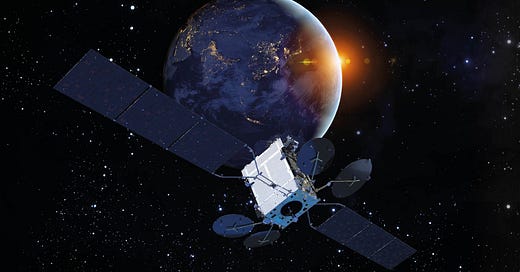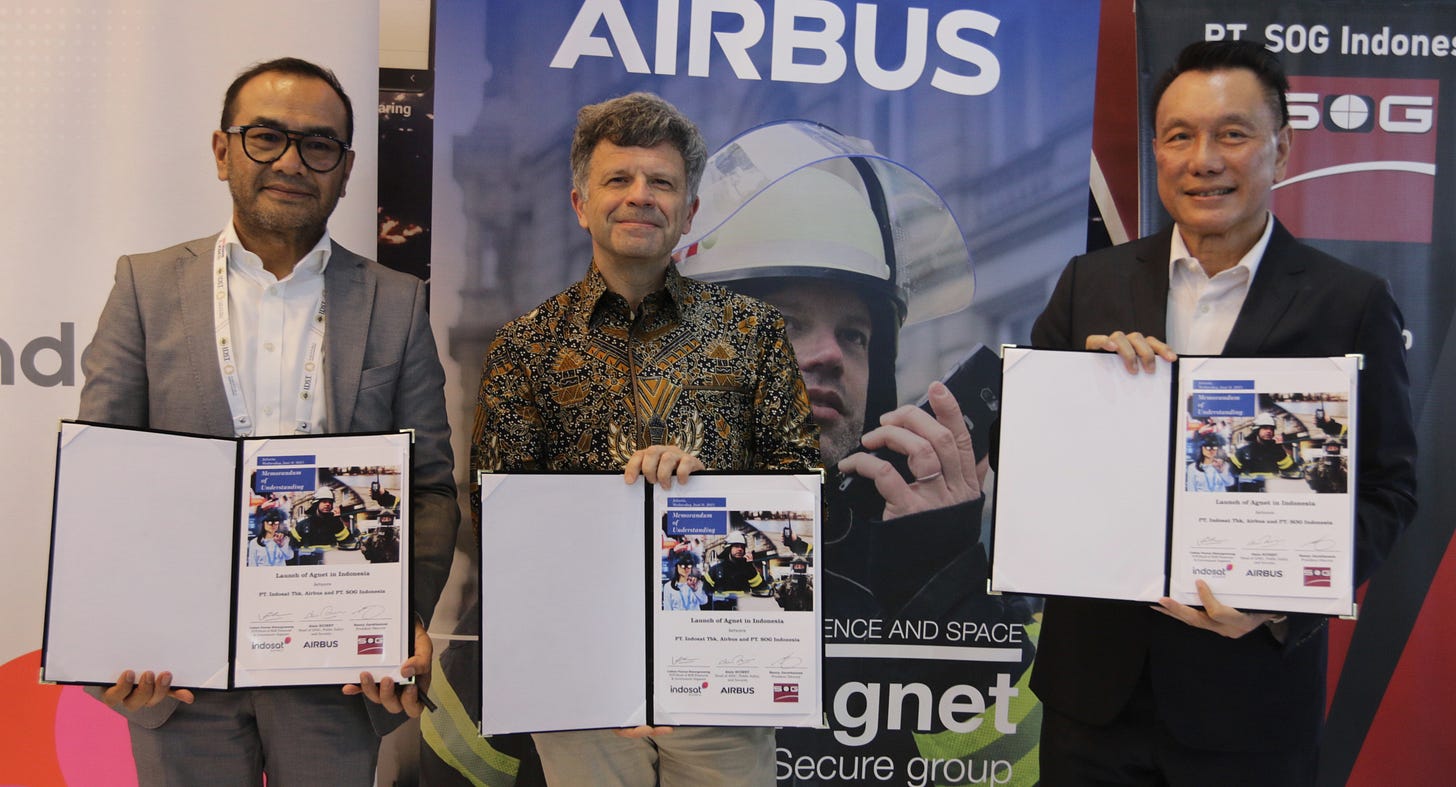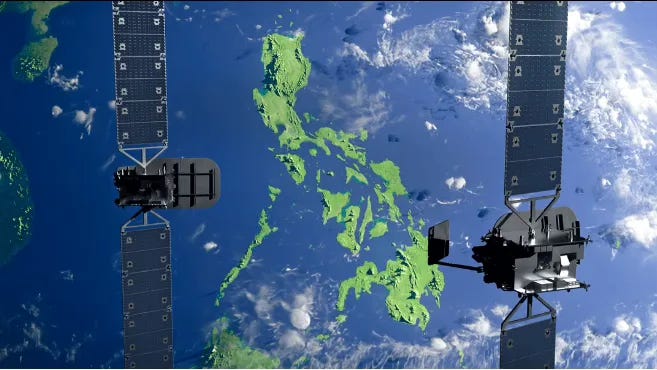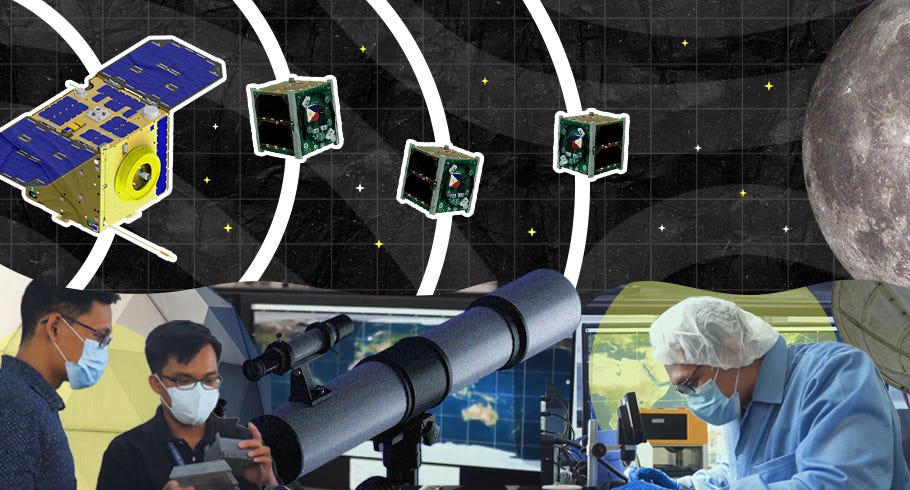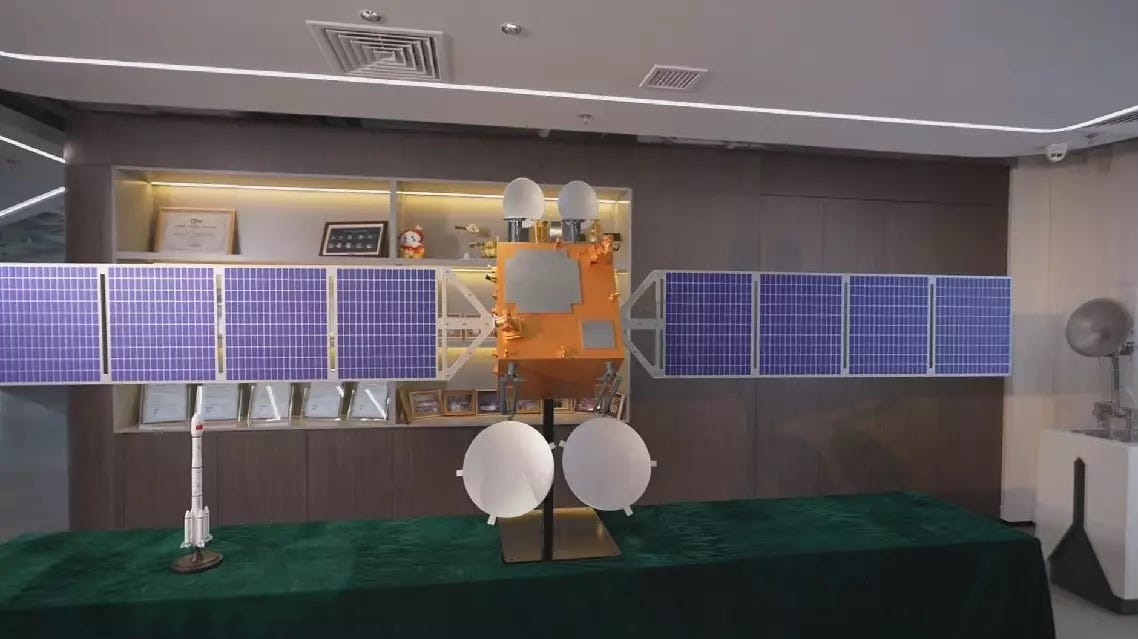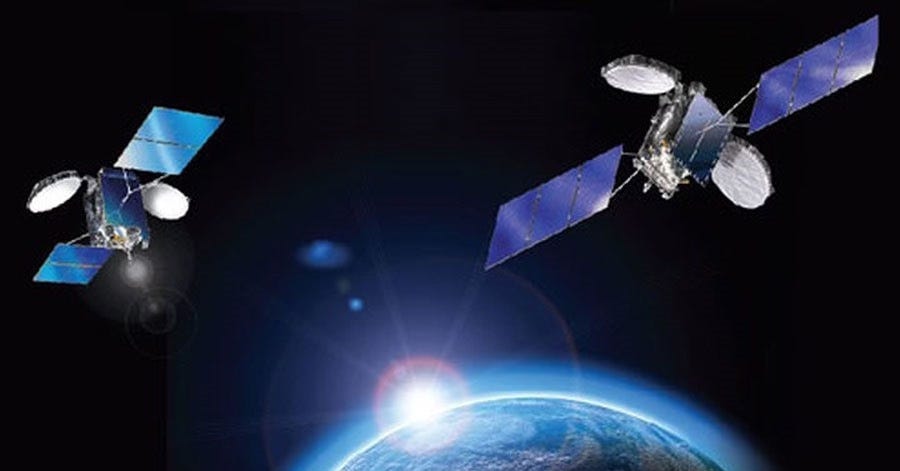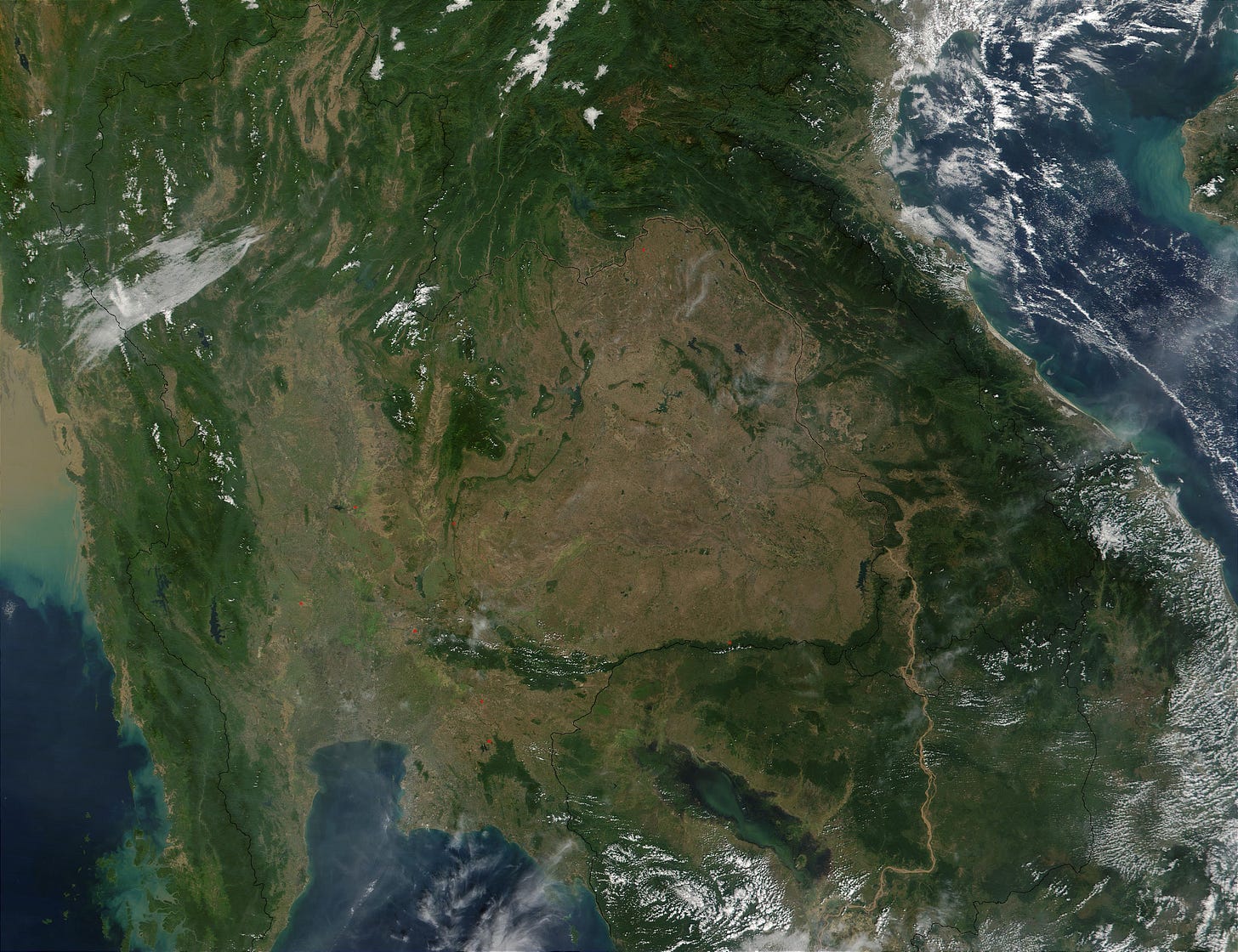Southeast Asia Space Roundup: 12 to 18 June 2025
A summary of all the space news in Southeast Asia over the past week, brought to you by AzurX
The following are the major space developments in the Southeast Asian region tracked by Southeast Asia Space Monitor over the past week:
Indonesia Space Development
Indonesia’s Telkomsat Reports Strong 2024 Results, Exploring LEO SATCOM Constellation
Indonesia’s Telkomsat reported stronger-than-industry growth in 2024, driven by the expanded capacity of its Merah Putih-2 and Merah Putih-3 satellites, which have notably improved public service performance. Looking ahead, the company is exploring a LEO satellite constellation to bolster Indonesia’s space sovereignty, while adopting a collaborative stance with global players like Starlink and Amazon’s Kuiper. Telkomsat also reaffirmed its commitment to national connectivity goals, offering flexible commercial models to support the government’s Bakti program amid fiscal tightening.
Indonesia’s BRIN to Intensify Space Situational Awareness Efforts Following Space Debris Incidents
Indonesia’s National Research and Innovation Agency (BRIN) is intensifying efforts to monitor and mitigate space debris risks, citing the country’s equatorial position as a high-exposure zone for orbital waste. At the Indo Defense Expo, BRIN emphasized that rising debris volumes threaten satellite security and astronaut safety, with Indonesia having already experienced six documented debris incidents since 1981. BRIN has developed its own trajectory-tracking software and a photometric observation system, reinforcing its role in global space situational awareness and advocating for national prioritization of orbital debris management.
Minister: Integrating AI Into Space Sector a Strategic Priority for Indonesia
At the 2025 AI Summit in London, United Kingdom, Indonesia’s Deputy Minister of Communication and Digital Affairs, Nezar Patria, emphasized the strategic importance of integrating artificial intelligence into the space sector. Participating in the “Space Meets AI” session, Nezar explored how AI can enhance satellite operations and space exploration while calling for ethical, tailored AI governance to support Indonesia’s ambitions in space. The forum underscored the potential for Indonesia to foster sustainable international collaboration in AI-enabled space innovation.
Indonesia’s BRIN Launches Geomimo Geospatial Satellite Data Platform
Indonesia’s National Research and Innovation Agency (BRIN) has launched Geomimo, a satellite image-based geoinformatics platform integrating multi-source data - including satellite imagery, field surveys, and community science - to support national research and environmental monitoring. Developed under a new BRIN regulation, the platform is now also accessible to the public. Geomimo aims to enhance Indonesia’s capacity to monitor deforestation and climate impacts using remote sensing, reflecting BRIN’s strategic role in leveraging advanced geospatial technologies for sustainable environmental governance across the archipelago.
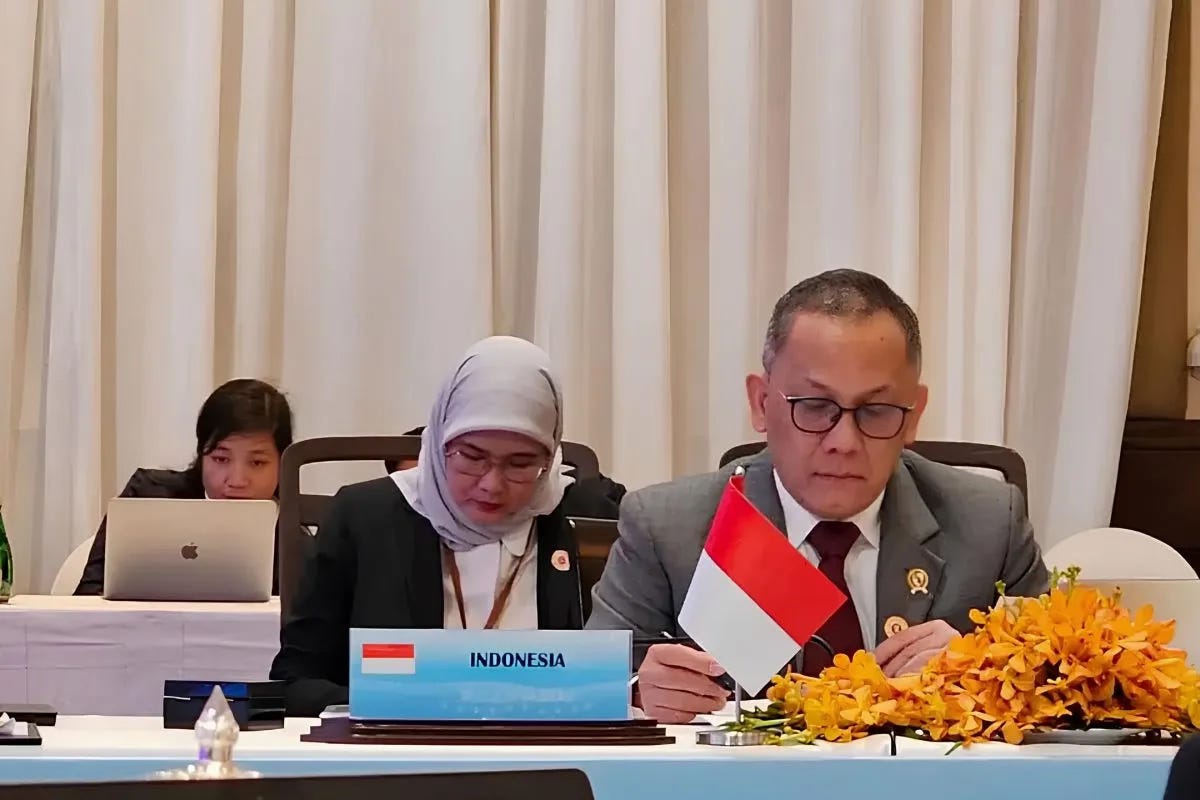
Indonesia Leads ASEAN Efforts for Regional Space and Satellite Development
Indonesia’s National Research and Innovation Agency (BRIN), as chair of the 2025 ASEAN Ministerial Meeting on Science, Technology and Innovation (AMMSTI) and COSTI, is advancing a regional agenda that includes space and satellite technology as a strategic priority. BRIN Head Laksana Tri Handoko emphasized the agency’s leadership in ASEAN subcommittees - particularly those focused on space technology applications - and outlined plans to position Indonesia as a regional hub for collaborative satellite research and innovation. With proposed initiatives tied to the 2025–2029 national development plan, Indonesia is seeking tangible partnerships with ASEAN and global actors to drive measurable outcomes in space science and infrastructure.
Indonesia Calls on ASEAN Member States to Co-Develop Space Capabilities
At the SCOSA forum held in Jakarta as part of ASEAN’s 2025 AMMSTI-COSTI events, Indonesia’s National Research and Innovation Agency (BRIN) called on ASEAN members to co-develop a resilient regional space ecosystem. Highlighting the strategic value of satellite operations since 1976, BRIN emphasized five priorities: talent development, legal frameworks, technological innovation, regional partnerships, and joint funding. With space launches seen as both technical and economic milestones, BRIN stressed the need for private sector involvement and unified ASEAN regulations to address resource disparities and accelerate space sector growth across Southeast Asia.
Indonesia’s BRIN & PT Pasifik Satelit Partner to Develop Electronically Steerable SATCOM Antennas
Indonesia’s National Research and Innovation Agency (BRIN) and PT Pasifik Satelit Nusantara (PSN) have signed a cooperation agreement to jointly develop a phased array antenna tailored for satellite communications. This collaboration - formalized at the 2025 Indo Defense Expo - marks a significant step toward enhancing Indonesia’s indigenous satellite ground infrastructure. The partnership will encompass research, prototyping, field testing, and system development, with the goal of delivering electronically steerable antennas capable of meeting both national demands and global competitiveness. The initiative reflects growing momentum to advance Indonesia’s space sector through locally driven, high-tech innovation.
Airbus Partners With Indosat & PT SOG for Agnet Deployment in Indonesia
Airbus Defence and Space has signed an MoU with Indosat and PT SOG Indonesia to explore the deployment of Airbus' Agnet mission-critical communication platform in Indonesia. The collaboration, announced at Indo Defence 2025, aims to develop a tailored, secure communications solution leveraging Airbus' expertise, Indosat’s 4G/5G infrastructure, satellite networks, and PT SOG’s systems integration capabilities. The initiative aligns with Indonesia’s digital transformation goals, targeting enhanced public safety, disaster response, and critical infrastructure resilience through a future-proof, cloud-enabled platform.
Philippines Space News
Philippines’ MIC Fund Mulls Financing DICT’s Acquisition of Agila SATCOM
Maharlika Investment Corp. (MIC), the Philippines’ sovereign wealth fund, is considering financing the Department of Information and Communications Technology’s (DICT) acquisition of bandwidth from the geostationary Agila satellite - an initiative aimed at expanding internet access to 10 million Filipinos across 30,000 barangays. With the satellite's cost reduced by at least a third following negotiations with provider Astranis, MIC views the project as strategically aligned with its mandate to invest in critical digital infrastructure. The DICT, working with a modest budget of just over $170 million, now seeks MIC's support to secure nationwide satellite internet coverage. MIC’s interest signals growing momentum behind sovereign satellite capabilities in the region. Meanwhile, the Philippines’ digital economy grew to approximately $38.9 billion in 2024, contributing 8.5% to GDP and employing 11.3 million people - bolstering the case for greater investment in connectivity infrastructure.
Filipino MIT Astrophysicist Returns to Advise Philippine Space Agency
MIT astrophysicist Joel Villasenor, a pioneering Filipino scientist behind missions like HETE-2 and NASA's TESS, recently returned to the Philippines under a Fulbright grant to advise the Philippine Space Agency on satellite projects and promote its role in the imminent expansion of global space activity. Emphasizing national dignity over spectacle, Villasenor cautioned against allowing commercial suborbital tourism to define the Philippines’ space legacy, urging the country instead to pursue spaceflight “the right way” - through sustained investment, scientific merit, and strategic international collaboration.
Philippine Space Agency Earns ‘Very Satisfactory’ Rating in National Audit
The Philippine Space Agency (PhilSA) earned a ‘Very Satisfactory’ rating from the Department of Budget and Management in its 2024 Annual Agency Performance Report, reflecting strong governance, operational efficiency, and strategic alignment with national development goals. Scoring 4.39 out of 5, the rating affirms PhilSA’s growing institutional maturity as it advances space science and technology applications to support economic resilience, inclusive growth, and the broader utilization of space-based assets for national benefit.
Malaysia Space Developments
Malaysia’s Angkasa-X Benefits From China’s Cangyu Advancement of Satellite Data Relay Constellation
China’s Cangyu Space Technology is advancing a hybrid-orbit commercial data relay constellation, with strategic implications for Malaysia’s growing space ambitions. At the 2024 Meishan Satellite Conference, Cangyu highlighted a 13-satellite system across MEO, GEO, and IGSO orbits, targeting UAVs, maritime, and remote data transmission use cases. Central to its international expansion is a multi-year partnership with Malaysia’s Angkasa-X and ADASpace - valued at $100 million - to co-develop a satellite constellation, ground infrastructure, and AI data center. Backed by approvals from Malaysia’s telecom regulator and the ITU, the deal positions Malaysia as a key node in China’s evolving “space-based Silk Road.”
Malaysia: Musk-Trump Fallout Results in Political Risk for Sabah Space Ambitions
The ambitions of Sabah - a state in Malaysia - to establish a space center face renewed uncertainty amid geopolitical tensions between Elon Musk and U.S. President Donald Trump, complicating potential investment from SpaceX and other American space firms. With global launch platforms in high demand and costly to access, Sabah is prioritizing the development of a ground-based operations site and progressing toward finalizing a feasibility study by July 2025. However, competition from Pahang and Sarawak and the need for significant foreign funding mean federal-level decisions will be critical to advancing the project.
Vietnam Space News
France’s Thales Expresses Interest in Joining Vietnam’s VINASAT-3 SATCOM Project
Thales has formally expressed interest in joining Vietnam’s critical VINASAT-3 satellite project, during Prime Minister Pham Minh Chinh’s June visit to France, highlighting deepening Franco-Vietnamese strategic-tech cooperation. With VINASAT-1 nearing end-of-life and VINASAT-2 aging, the replacement effort - led by state-owned VNPT - is urgent for national security and bandwidth continuity. Thales’ proposed involvement signals Vietnam’s openness to trusted foreign partners for space infrastructure, while regulatory developments - such as SpaceX being required to establish a legal entity in Vietnam - underscore Hanoi’s insistence on sovereignty and compliance in satellite services.
Vietnam & Australia Launch Strategic Technologies Center, With Focus on Satellite Technologies
Australia and Vietnam have launched the Australia-Vietnam Strategic Technologies Center (AVSTC) in Hanoi, with a key focus on advancing cooperation in satellite technology alongside AI, cybersecurity, and quantum research. Backed by AUD 2.1 million ($1.37 million) from Australia’s Department of Foreign Affairs and Trade and technical support from Nokia, the Center will foster joint innovation between PTIT, the University of Technology Sydney, and corporate partners. Satellite technology features prominently among the eight inaugural projects, signaling its strategic importance in bilateral tech collaboration.
Thailand Space Developments
U.S. Trade Tariffs Impact Thailand, SE Asia, Satellite Supply Chains
The U.S. space sector faces growing uncertainty due to the Trump Administration’s evolving tariff policies, with specific implications for Southeast Asian supply chains. Notably, Iridium cited Thailand as a key manufacturing base potentially affected by tariffs, estimating a cost impact of $3–7 million. Broader concern surrounds Southeast Asia’s role in satellite user terminal supply chains, with analysts warning of rising costs and delivery delays. As U.S. firms reassess sourcing strategies, Thailand and the wider region may face indirect pressure from protectionist U.S. moves - posing both risk to existing business and opportunity for repositioning as alternative, tariff-resilient partners.
Other Regional Space News
Opinion: Southeast Asia Startups Can Harness Growing Space Opportunities
Southeast Asia is rapidly emerging as a key node in the global space economy, driven by strong government backing, rising foreign investment, and a dynamic startup ecosystem increasingly integrating satellite-based technologies, writes Michelle Khoo in KrAsia. A joint report by Deloitte and SST Think Tank highlights that Earth observation (EO) data alone could triple in value to $45 billion by 2030 in the region, catalyzing an estimated $100 billion boost in GDP. Countries like Malaysia, Indonesia, Singapore, and Thailand are committing serious public funding - such as Singapore’s $155 million space program - and ambitious goals, including launching national satellite constellations and supporting hundreds of space-focused startups. With use cases spanning agriculture, logistics, energy, and climate risk, startups across ASEAN are now applying EO, GNSS, and satellite communications to solve real-world challenges and unlock new markets - making the space sector an increasingly strategic driver of regional economic development.
Be sure to catch up with space activities in the region in the next edition of Southeast Asia Space Monitor’s space roundup!
Follow Southeast Asia Space Monitor on X at: @SEAsia_Space and on BlueSky at: @seasiaspacemonitor.bsky.social

